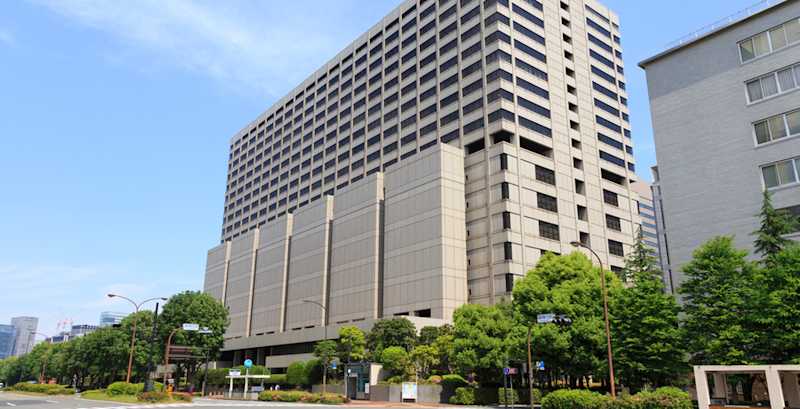Recent Indian court decisions strike a blow against hold-out
In an exclusive analysis for Sisvel, Singh & Singh senior partner Ashutosh Kumar explains how recent Delhi High Court orders have clarified what it takes for SEP owner to get relief at the pro-tem stage
By Ashutosh Kumar
Two decisions issued by the Delhi High Court made headlines in the FRAND world over the summer, with judges ordering companies accused of SEP infringement to make pro-tem security deposits.
Though the expression “pro-tem”, in the context of interim orders passed in SEP disputes in India, has gained popularity recently, Indian courts have been passing such orders for a long time in variety of disputes, including SEP cases. Derived from Latin phrase ‘Pro tempore’, the expression simply means ‘for the time being’. The intent is to pass an order that balances equity between parties until the court has time to fully consider the merits of a case.
Long before a FRAND framework was set out in Huawei v ZTE by the Court of Justice of the European Union (CJEU), Indian courts were following a similar framework when dealing with SEP disputes. However, it was not formalised until 2023 when, in the Intex v Ericsson case, the Delhi High Court laid down a FRAND protocol.
The 2014 Ericsson v Xiaomi case saw the first use of the expression ‘pro-tem’ in an Indian SEP dispute. The Division Bench of the Delhi High Court directed Xiaomi to deposit INR 100 (approximately US$1.5 in 2014) per device sold in India with the court. Other pro-tem orders were subsequently passed in various SEP disputes such as Nokia v Oppo, Philips v OnePlus, Philips v Xiaomi, Philips v Vivo and many others.
Decisions clarify threshold for pro-tem relief
The recent pronouncements in two cases – CCAI v Ace Technologies and Dolby v Lava – have clarified the legal threshold for getting a pro-tem deposit order.
Conventionally, local civil procedure laws require courts in India considering whether to pass an interim order to apply the classic trinity test, considering:
prima facie view;
balance of convenience; and
irreparable harm.
Application of this test in patent disputes is affected by various factors, most importantly time.
Passing an interim injunction order in a complex technical matter requires more judicial time. India’s judge-population ratio is very low in comparison to, for example, the US, UK and EU – a fact recognised by the court in the Intex v Ericsson judgment. From an implementer’s point of view, Indian courts’ paucity of time can be an effective factor in their litigation strategy, or even a tool for hold-out. We have seen this occur in almost every SEP case in India.
Employing a strategy of hold-out, implementers in various SEP cases have argued that even to pass a pro-tem order, the court is required to apply the trinity test in the same manner as in an interim injunction motion. Thus, implementers argue that until the court returns its prima facie findings on issues such as essentiality, validity and infringement of the involved SEPs, no deposit orders can be passed. A further argument raised is that no pro-tem order can be passed without looking into comparable licence agreements.
In the recent Dolby v Lava judgment, the court rejected these arguments, relying on the FRAND protocol laid down in the Intex v Ericsson judgment, and reiterated that: “It is abundantly clear that the Court has the power, in order to balance the equities between the parties, to pass a pro tem order as a temporary arrangement without a detailed examination of the merits of the case.”
The court further rejected the argument that it must first look at comparable licence agreements and clarified that “for passing pro tem orders, no detailed exploration of merits of the case is required, as is required for purposes of grant of an interim injunction”. The court also ruled that: “There is no requirement for the patent owner to furnish any third-party licensing agreements to the implementor at the stage of negotiations or at the stage of determining pro tem deposit.”
Similarly, the court in the CCAI v Ace case rejected all the procedural arguments of the defendant and passed a pro-tem deposit order by invoking its inherent jurisdiction.
These judgments ensure that in SEP disputes, Indian courts should not allow procedural and practical difficulties created by the paucity of judicial time to enable a hold-out strategy by implementers.
Large deposit orders are possible to obtain
The recent orders required Ace Technologies to deposit INR 290 Crores ($34 million) and Lava to deposit INR 20 Crores ($2.3 million). But in past cases, the court has been willing to require larger sums be posted.
In the Philips v Xiaomi dispute, the Delhi High Court on the very first date of hearing directed Xiaomi to maintain in its account an amount of INR 1000 Crores (approx. $136 million in 2020). The court subsequently directed Xiaomi to furnish guarantees from an Indian bank for the aforesaid amount. Xiaomi later settled its dispute with Philips and the matter was disposed. In general, cases in which implementers have been ordered to make a pro-tem deposit typically end in settlement.
Court appears concerned about hold-out strategies
Indian courts have expressed concern over hold-out in SEP disputes and have tried to address this problem by ensuring that implementers comply with the FRAND protocol. The Dolby v Lava case is one of the latest examples highlighting implementer hold-out, with the court observing:
Based on the aforesaid analysis of the correspondence exchanged between the parties, in my prima facie view, the conduct of Lava amounts to ‘patent holdout’. Therefore, in terms of the FRAND protocol, as laid down in the judgment of the European Court of Justice in Huawei v. ZTE (supra), and followed by the Division Bench in Intex v. Ericsson (supra), Lava would be deemed to be an unwilling licensee.
The court further held:
Lava failed to comply with the obligations of an implementor under the FRAND protocol of showing the willingness to negotiate and execute a FRAND license and to make a counter-offer. Throughout the negotiations that were carried out for six years, Lava kept on asking for details and information from Dolby, without providing any evidence to show that it is not using Dolby’s technology. Lava’s strategy was simply to delay the negotiations.
And it went on to state:
Pertinently, in the six years of negotiations, Lava has never questioned the validity of the suit patents on these grounds. From time to time, Lava called upon Dolby to provide technical details and information regarding the suit patents which were duly provided by Dolby to Lava. At no point has Lava questioned the adequacy of the technical information provided by Dolby. Clearly, the attempt of Lava to raise issues of validity at this stage is only to avoid making a pro tem deposit and delay the adjudication of the present suit.
Similar observations have been made by courts in cases such as Ericsson v Lava and Ericsson v Intex.
Any patent owner seeking a pro-tem remedy must ensure that it completely adheres to the FRAND protocol as laid down in India. This is very similar to what has been prescribed by the CJEU in Huawei v ZTE. Before litigation commences, it is advisable to ensure that plaintiff has fulfilled its part of the obligations as enumerated under the FRAND protocol.
Ashutosh Kumar is Senior Partner at Singh & Singh Law Firm LLP in Delhi
The opinions expressed within this article are the author’s own and do not necessarily reflect the views of Sisvel. The content is for informational purposes and should not be taken as legal advice.


